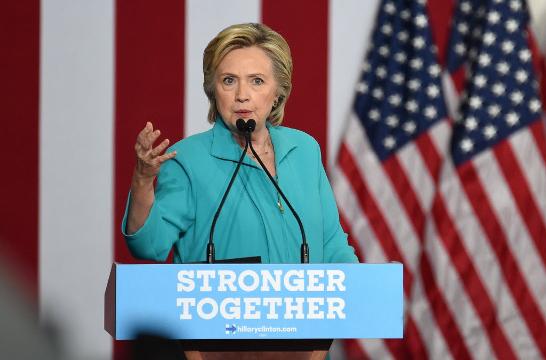Clinton offers plan to rein in 'excessive' drug price hikes

Hillary Clinton announced a plan Friday to stop pharmaceutical companies from charging excessive prices for long-available prescription drugs.
Her plan would allow the government to step in when "public health is put at risk by an unjustified, outlier price increase," according to a campaign statement. The announcement came amid controversy over steep increases in the cost of the EpiPen, a lifesaving injection for people with severe allergies. Last week, Clinton called on its manufacturer, Mylan, to immediately lower the price.
“Over the past year, we’ve seen far too many examples of drug companies raising prices excessively for long-standing, lifesaving treatments with little or no new innovation or R&D,” Clinton said in the statement. “It’s time to move beyond talking about these price hikes and start acting to address them."
Her plan calls for a new interagency group dedicated to protecting consumers from outlier price increases. It includes new enforcement tools to support alternative manufacturers to increase competition and bring down prices; emergency importation of alternative treatments; and penalties for drug companies.
Among the price hikes Clinton highlighted are Turing's 5,500% increase of an AIDS patient drug and Mylan's more than 400% increase in the price of the EpiPen. In response to an outcry, Mylan said last week that it will take several steps to cut prices, including introducing a lower-priced generic alternative.
From 2008 to 2015, drugmakers increased the prices of almost 400 generic drugs by more than 1,000%, according to the Clinton campaign. Many of the companies are examples of a "troubling trend" in which manufacturers hike prices after acquiring drugs they haven't developed on their own.
"Our pharmaceutical and biotech industries are an incredible source of American innovation and revolutionary treatments for debilitating diseases," Clinton said. "But I’m ready to hold drug companies accountable when they try to put profits ahead of patients, instead of back into research and innovation.”